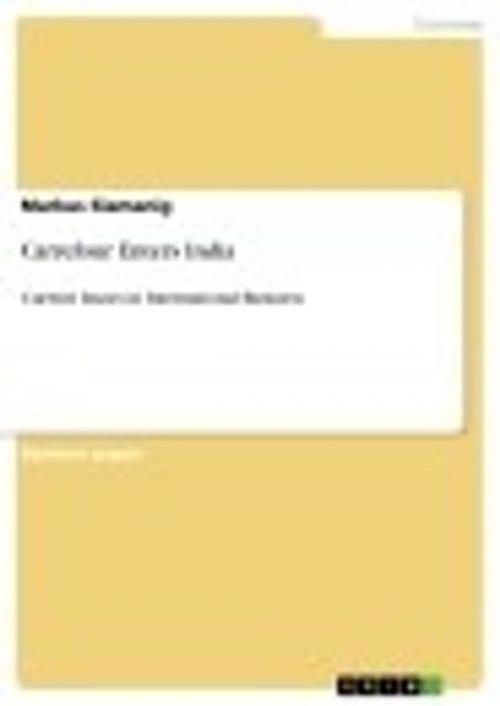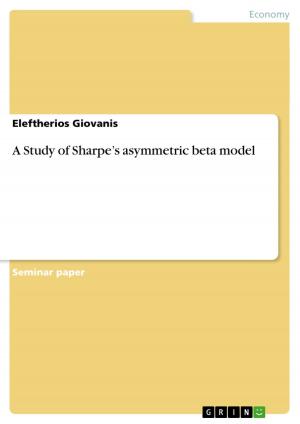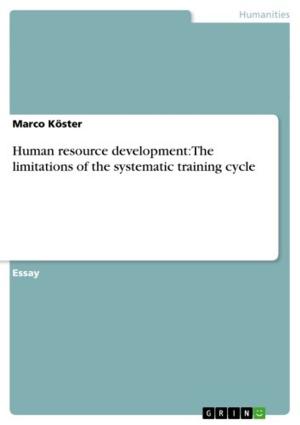Carrefour Enters India
Current Issues in International Business
Business & Finance, Industries & Professions, Distribution| Author: | Markus Slamanig | ISBN: | 9783656181620 |
| Publisher: | GRIN Publishing | Publication: | May 2, 2012 |
| Imprint: | GRIN Publishing | Language: | English |
| Author: | Markus Slamanig |
| ISBN: | 9783656181620 |
| Publisher: | GRIN Publishing |
| Publication: | May 2, 2012 |
| Imprint: | GRIN Publishing |
| Language: | English |
Seminar paper from the year 2012 in the subject Business economics - Trade and Distribution, grade: A, Florida International University, Modesto A. Maidique Campus, language: English, abstract: In accordance with Carrefour's global strategy to show presence in all major emerging markets, the company entered India (Economic Times, Dec 31 2010), although the Indian government is still following strict regulations for foreign companies. No foreign direct investment (FDI) is allowed in the so-called multi-brand retail category, that is, organized retail that sell multiple-brands to end-consumers (Chari, Raghavan, 2011). However, there are no such obstacles for the so-called cash&carry retail category, which refers to wholesale retail; thus, foreign companies are allowed to sell goods and merchandise to other retailers, to industrial, commercial, institutional, or other professional business users, or to other wholesalers (Chari, Raghavan, 2011). Given this situation, Carrefour used an approach to set-up a cash & carry format store to circumvent the barriers imposed by the government (Economic Times, Dec 31 2010). The store is located in Delhi, has opened in December 2010 and sells over 10,000 products in both, the food and non-food category (Economic Times, Dec 31 2010). Using this as a first step, Carrefour will be able to learn and understand the specificities of the Indian market and use the store as a hub for further expansion throughout the market (Economic Times, Dec 31 2010).
Seminar paper from the year 2012 in the subject Business economics - Trade and Distribution, grade: A, Florida International University, Modesto A. Maidique Campus, language: English, abstract: In accordance with Carrefour's global strategy to show presence in all major emerging markets, the company entered India (Economic Times, Dec 31 2010), although the Indian government is still following strict regulations for foreign companies. No foreign direct investment (FDI) is allowed in the so-called multi-brand retail category, that is, organized retail that sell multiple-brands to end-consumers (Chari, Raghavan, 2011). However, there are no such obstacles for the so-called cash&carry retail category, which refers to wholesale retail; thus, foreign companies are allowed to sell goods and merchandise to other retailers, to industrial, commercial, institutional, or other professional business users, or to other wholesalers (Chari, Raghavan, 2011). Given this situation, Carrefour used an approach to set-up a cash & carry format store to circumvent the barriers imposed by the government (Economic Times, Dec 31 2010). The store is located in Delhi, has opened in December 2010 and sells over 10,000 products in both, the food and non-food category (Economic Times, Dec 31 2010). Using this as a first step, Carrefour will be able to learn and understand the specificities of the Indian market and use the store as a hub for further expansion throughout the market (Economic Times, Dec 31 2010).















